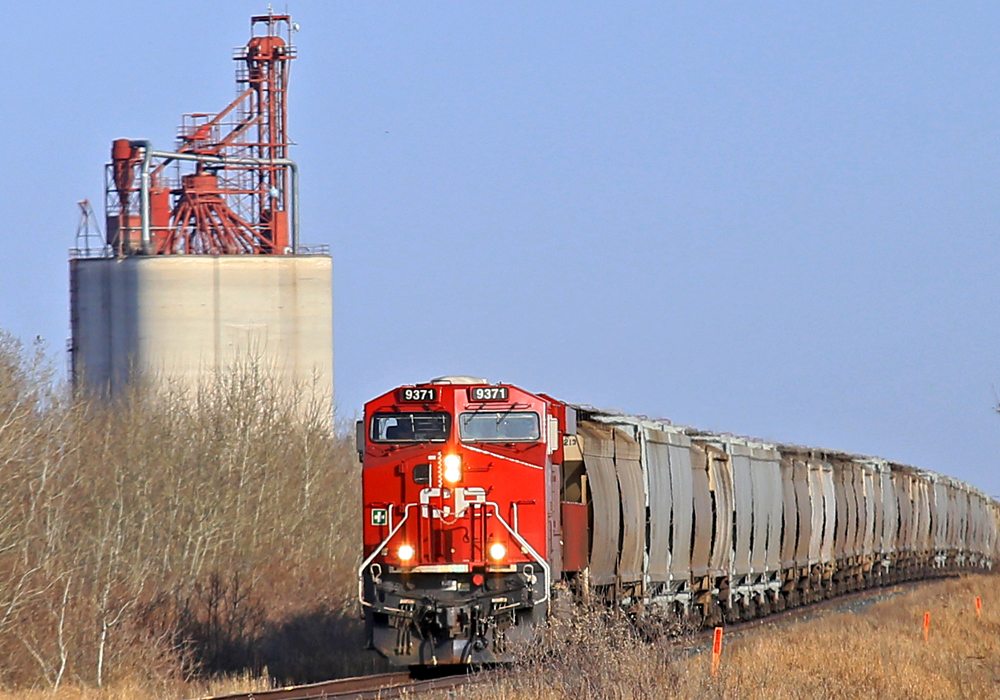Engineers, train conductors and electrical workers at Canadian Pacific Railway will decide whether to accept or reject CP’s final contract offer in an electronic vote to be held May 14-23.
The Canadian Industrial Relations Board confirmed the dates this week.
The Teamsters Canada Rail Conference (TCRC) and the International Brotherhood of Electrical Workers (IBEW) are urging their members, which include roughly 3,000 engineers and conductors as well as 3,600 signal maintenance workers, to reject the final offer.
TCRC officials said they will make one last attempt to resume negotiations with CP, even if the vote is rejected.
Read Also

Saskatchewan dairy farm breeds international champion
A Saskatchewan bred cow made history at the 2025 World Dairy Expo in Madison, Wisconsin, when she was named grand champion in the five-year-old Holstein class.
“May 23 is Judgment Day at Canadian Pacific,” said TCRC president Doug Finnson.
“CP has done everything it can to make a strike inevitable, but they can still avoid a work stoppage by bargaining in good faith.
“Teamsters are ready to negotiate with CP, but we cannot bargain alone.… CP has to be ready to settle outstanding issues and to provide workers with a good and fair collective agreement.”
On April 20, federal Labour Minister Patricia Hajdu agreed to CP’s request to order a vote on the railway’s final offer to TCRC and IBEW members.
The federal order postponed a strike that was set to begin April 21, shortly after midnight.
TCRC said eligible workers will be mailed voting information and will be able to cast ballots via telephone and internet.
Results of the vote are expected to be known May 23.
The CIRB vote comes after a prolonged negotiation between the company and unionized workers.
TCRC said CP’s final offer does not address workers’ issues and underestimates their anger with the company’s labour relations policy and management practices.
CP’s three-year contract offer includes a two percent year-over-year annual salary increase, an improved benefits package and a $1,000 grievance resolution payment, available to every employee who agrees to drop outstanding labour grievances against the company.
Finnson said worker fatigue is an important issue that must be resolved.
“You can’t safely work in the rail industry if you’ve been awake for too long,” he said.
“Another irritant is the fact that CP wants to pay workers less than at Canadian National, its biggest competitor.”
Officials at CP said acceptance of the final offers will negate the threat of a work stoppage at the country’s second largest rail company.
If the final offers are not accepted, a minimum of 72 hours’ notice will be required before any work stoppage could occur, be it a strike or a lockout.
CP has launched a website with the details of its final offers at www.cpofferinfo.ca.
In a letter to TCRC members, CP president Keith Creel acknowledged difficulties in the company’s past relationships with employees.
“I’ve heard your concerns. I acknowledge some of the difficulties of our past relationship that continue to haunt us, including mistakes the company has made,” Creel wrote.
“While I cannot change the past, and the way in which things transpired, I can try to find ways towards a brighter future. I believe our contract offer does just that.”
Creel said the proposed agreement is what CP calls a “pattern” agreement that’s consistent with other labor agreements the company negotiated in 2017.
Total revenues at CP amounted to $6.55 billion in 2017, compared to the company’s five-year average of $6.45 billion.
Net income in 2017 was $2.41 billion, compared to the five-year average of $1.54 billion.
Expenditures on compensation and benefits were $1.04 billion in 2017, down from $1.19 billion in 2016 and $1.37 billion in 2015.
Contact brian.cross@producer.com
















